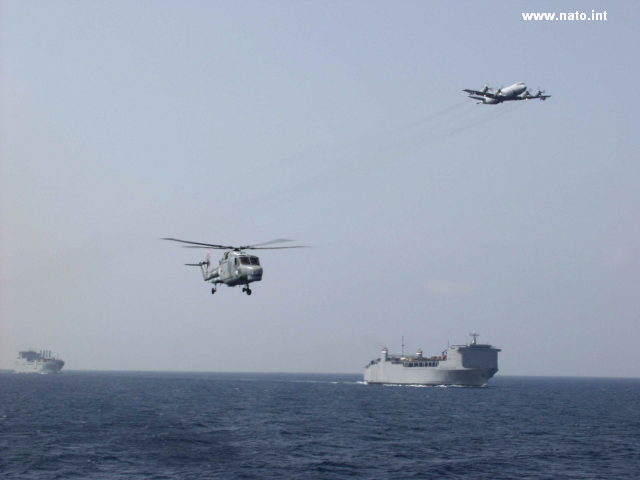The Black Sea area and its emerging tensions
The extended Black Sea area is a geopolitical center and a region of strategic economic interest.

Corina Cristea, 21.07.2017, 13:12
The extended Black Sea area has got the profile of a geopolitical center, a region of strategic economic interest and also an outpost of NATO and the EU. This happened against the background of increasingly diversified sources of insecurity that originate in plagues such as terrorism, proliferation of mass destruction weapons and technologies, of chemical and biological weapons, drugs and human trafficking as well as illegal migration.
In this context, the fight against terrorism and organized crime alongside increased competition over energy resources and their means of transportation have turned the Black Sea into the focus of attention of European and Euro-Atlantic institutions. Starting from the idea that the Black Sea is a strategic axis, this issue has been recently approached at the Hudson Institute in the US, which, alongside the Romanian Research Institute, organized a conference on emergent tensions in the region, in terms of military and energy security. Radio Romania’s correspondent to Washington DC, Doina Saiciuc, describes the region’s geopolitical context as painted at the meeting:
Doina Saiciuc: “During most of recorded history, the Black Sea has been a strategic axis, and it continues to be so. Today, in an area where Russia annexed Crimea and supports the insurgence in eastern Ukraine, where Moscow assists military and politically the breakaway regions of Transdniester in Moldova and Abkhazia in Georgia, where Russia consolidates its military fleet in the Black Sea and where Russian planes are harassing American ships, three NATO countries are also Black Sea countries and they must deal with Russia’s military presence. These countries are Romania, Bulgaria and Turkey.”
Laurentiu Pachiu, one of the founders of a group for energy policy, talked about security at the Black Sea at a time when, after the annexation of Crimea, Romania was put into the situation of having a common Black Sea border with the Russian Federation.
“If we look at the European continent from the perspective of today’s energy security, we see three security threats and challenges. The long-standing threats, aggravated today by terrorism, are the weapons of mass destruction, regional conflicts, government failures in Europe’s vicinity, and organized crime. Adding to that are climate change and threats to cyber security,” says Laurentiu Pachiu. Then, he went on to say, there is the domestic dimension of energy security, which in Europe is quite challenged. If we look at the EU countries, each of them has a different energy policy: some are based on coal, some on nuclear energy, some resort to huge natural gas imports.
At the same time, a major energy security challenge is the fact that most EU countries depend on one natural gas supplier alone, which is Russia. Experts in international relations and diplomats discussed in Constanta in southeastern Romania at the “Black Sea and Balkans Security Forum 2017” the challenges facing the countries in the region among which energy and cyber security, intelligence war and the militarisation of the Black Sea. Ambassador Sorin Ducaru, assistant of the NATO Secretary General:
Sorin Ducaru: “At the level of the Alliance, we are dealing with the most complex security context in one generation. There is a combination of classical, conventional threats that are related to the very reasons the Alliance was set up. There is another category of threats, the unconventional ones known as new threats, namely, the emergent threats to international security and to the Alliance, that include terrorist threats, cyber threats, hybrid threats combining conventional and unconventional forms as well as these tendencies targeting data manipulation.”
As regards the measures to be taken to fight these threats, Sorin Ducaru says that NATO’s approach has two components:
Sorin Ducaru: “The first component targets the defense of the allied territory and the member states, somehow related to the main reason for which the Alliance was created — that is collective defense. The second component refers to projecting stability beyond the Alliance’s territory and strengthening defense capabilities, especially in the fight against terrorism.”
Bucharest’s foreign policy is built on the idea that the Western Balkans and the Black Sea must be considered as one when it comes to security threats.
(translated by: Elena Enache)






























